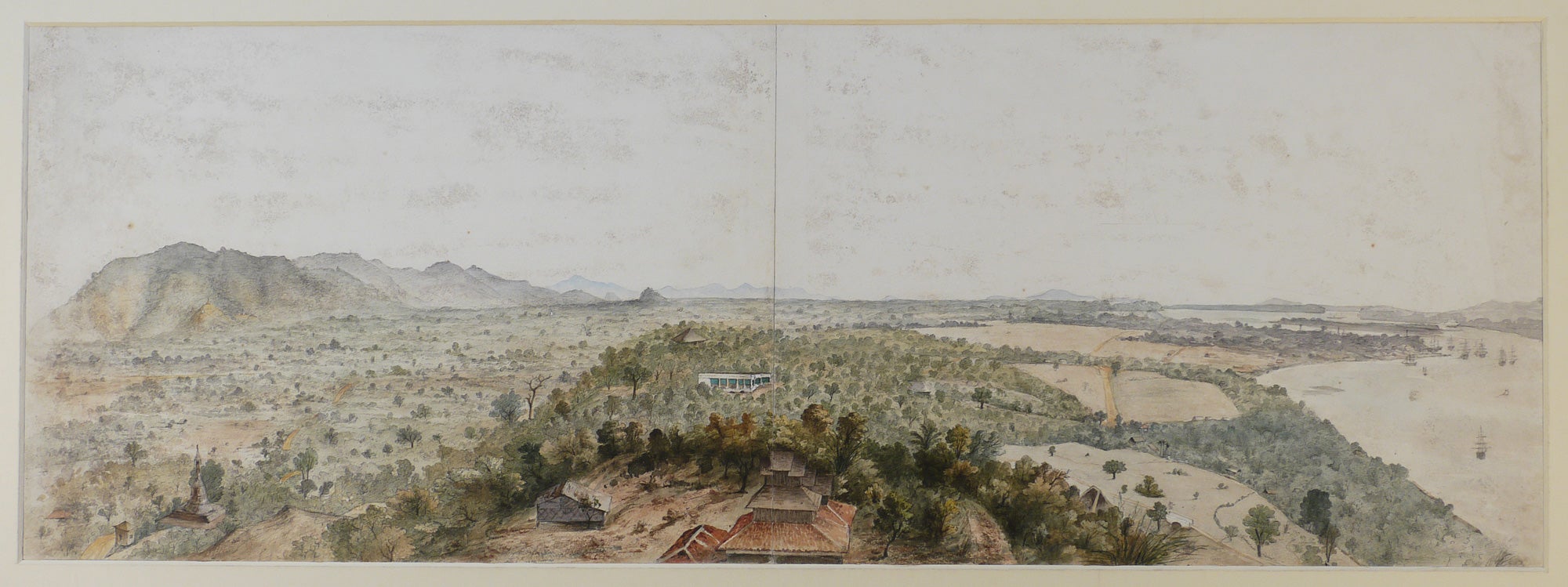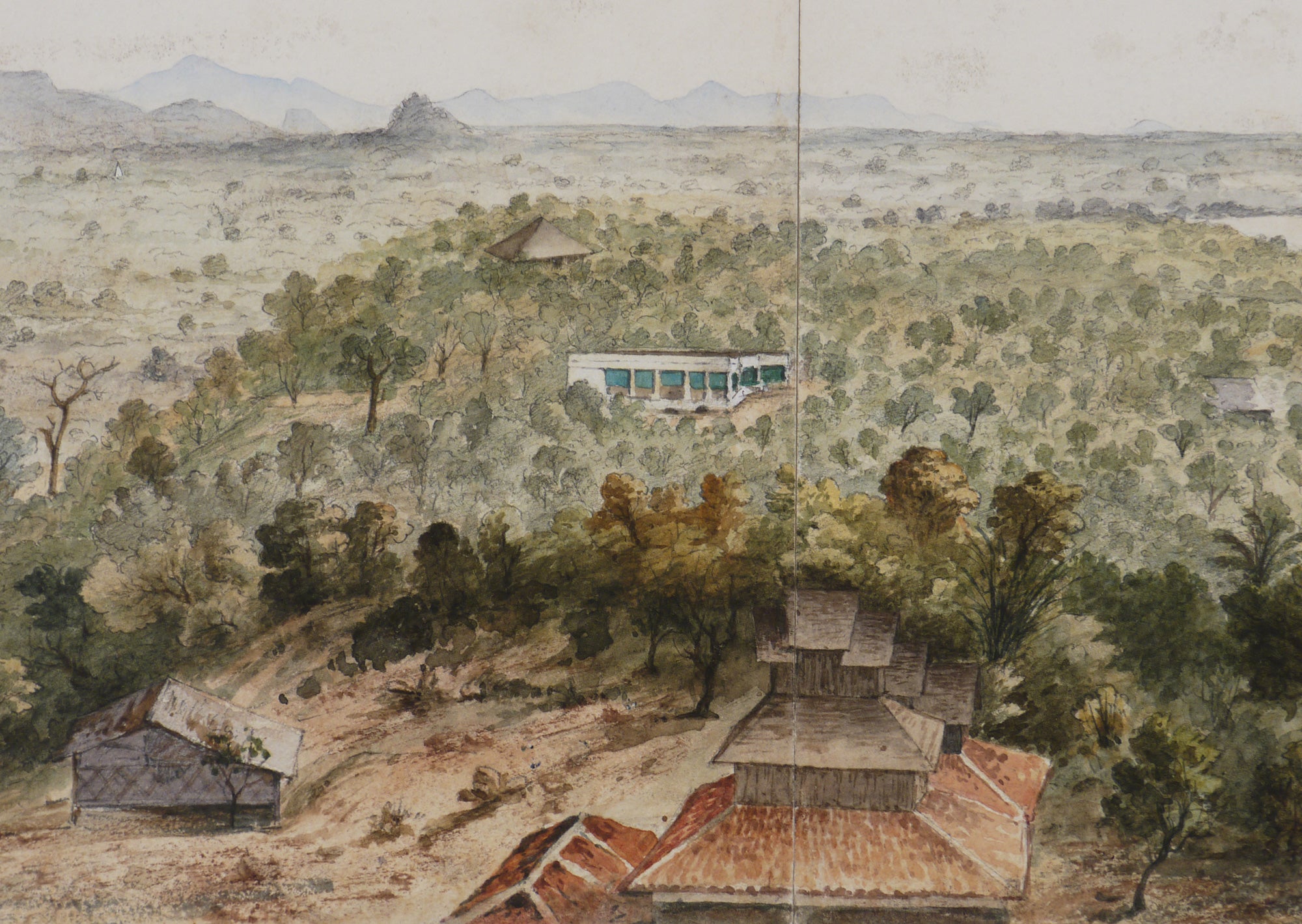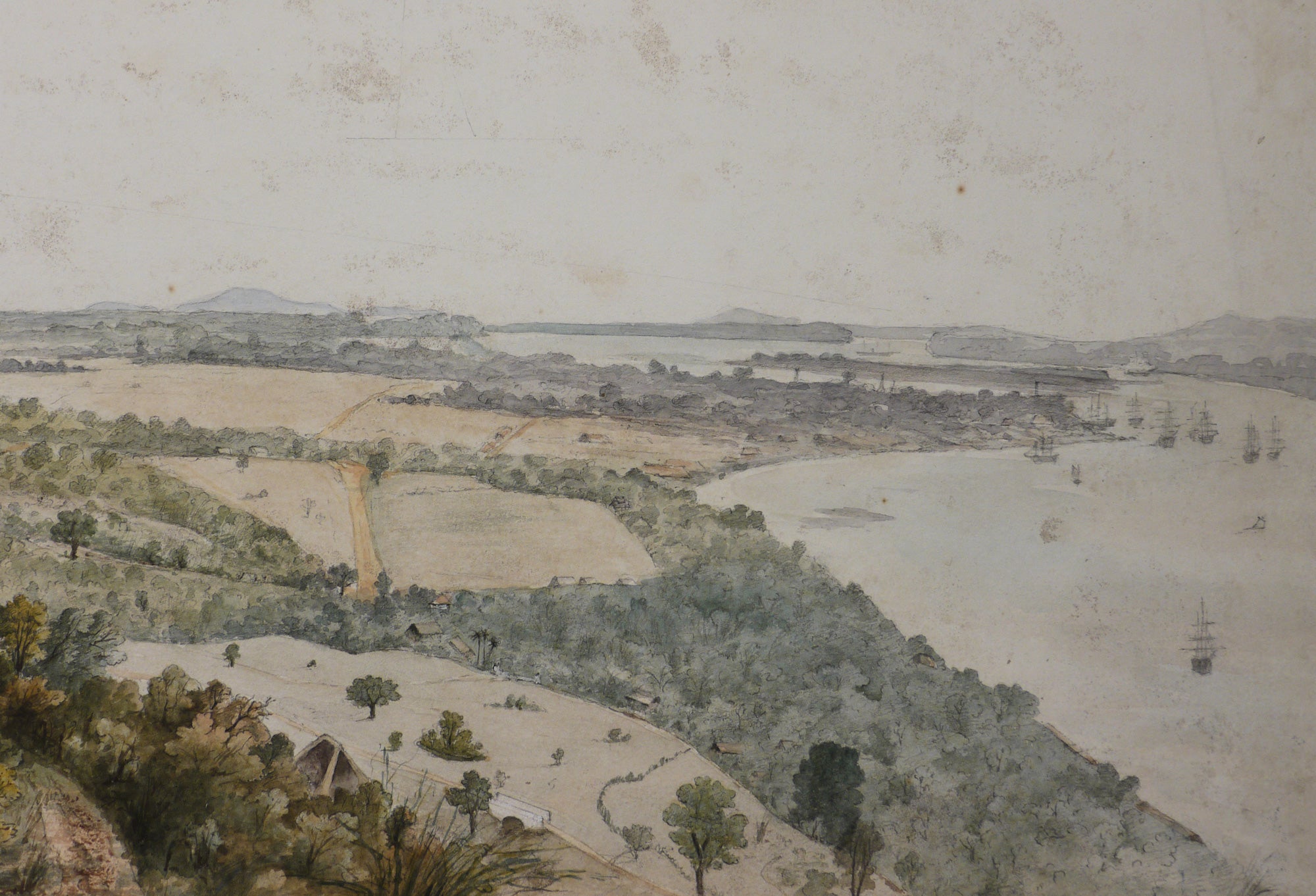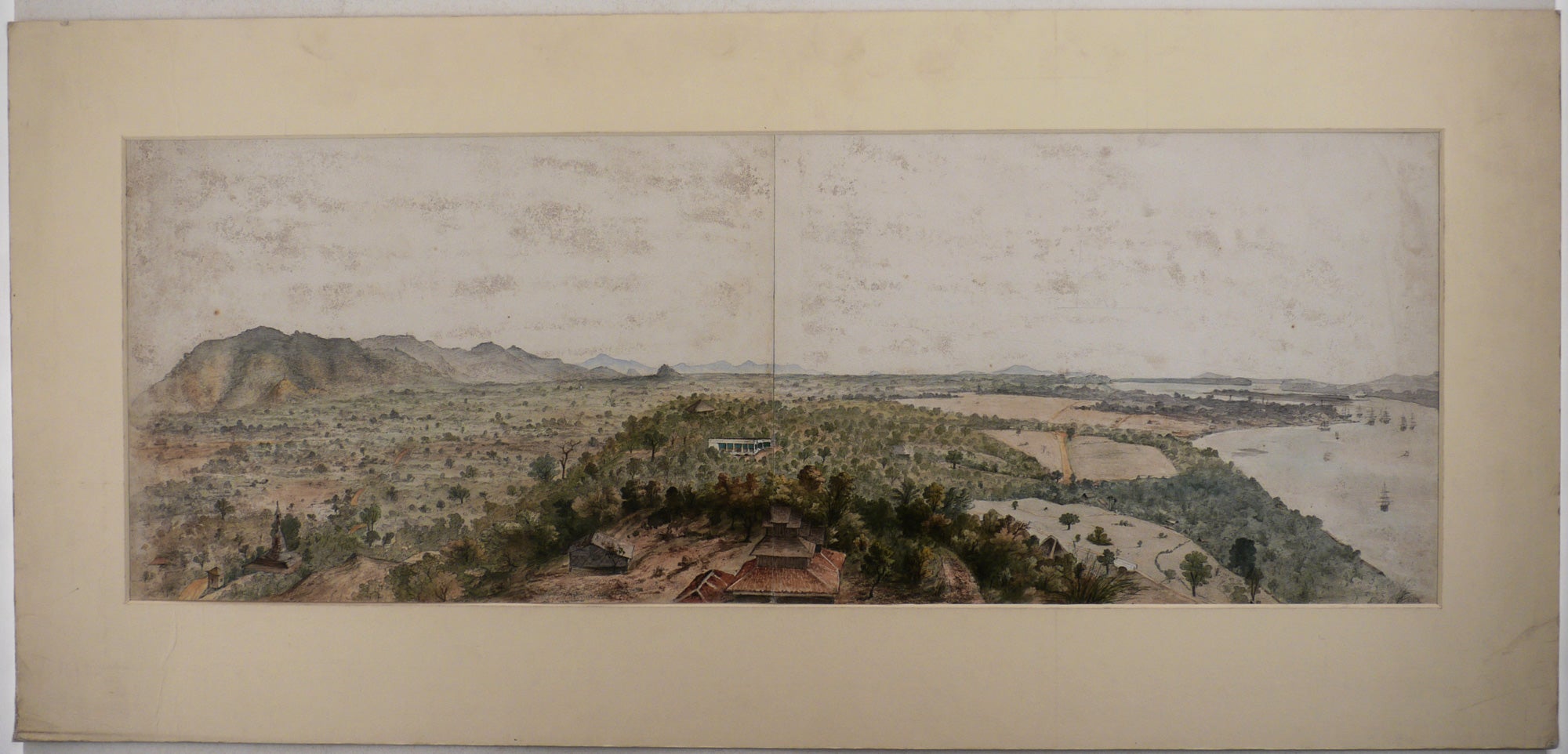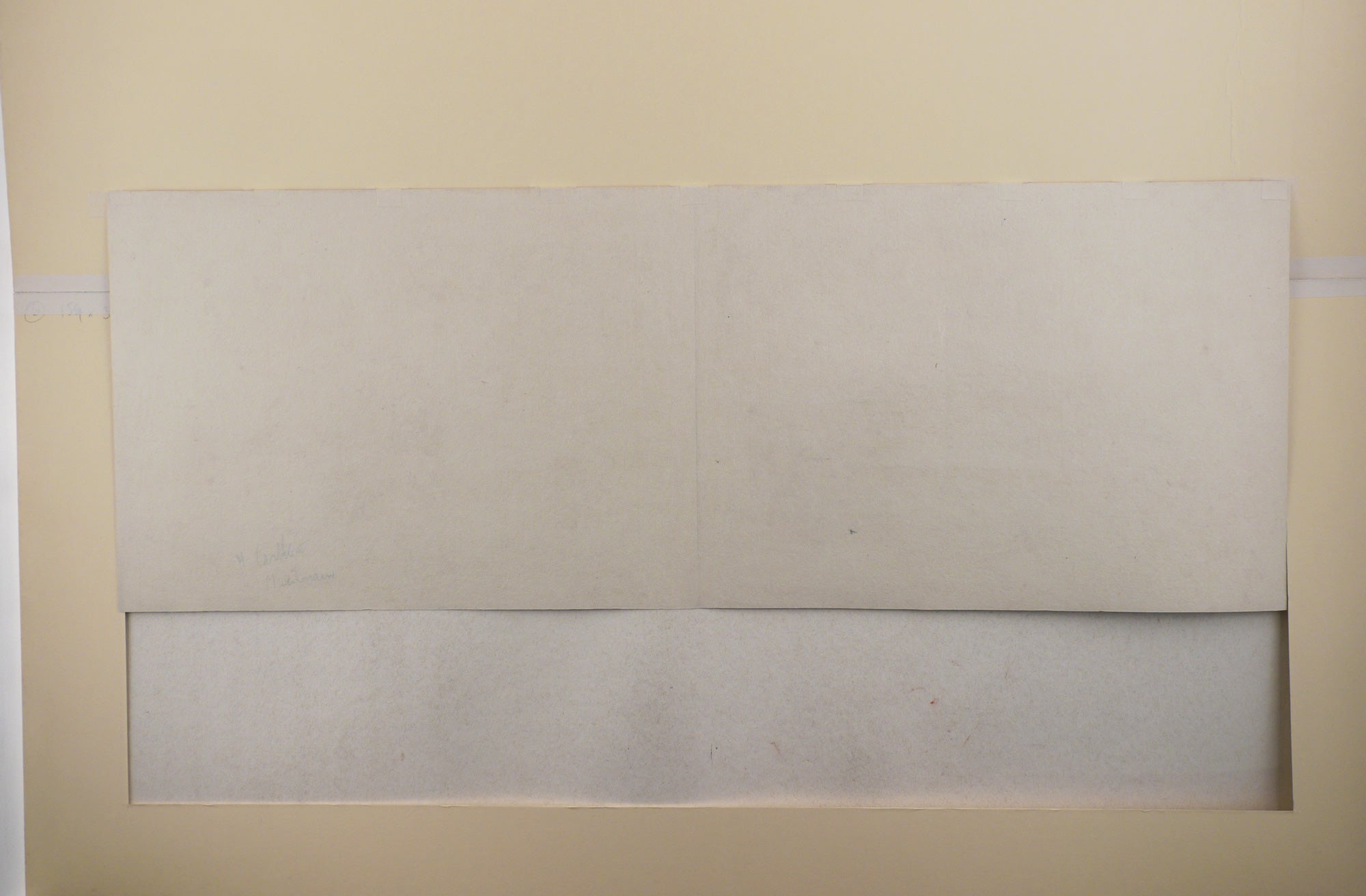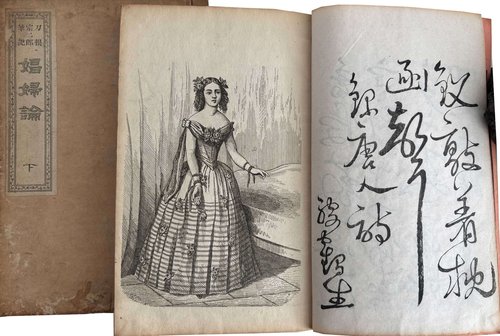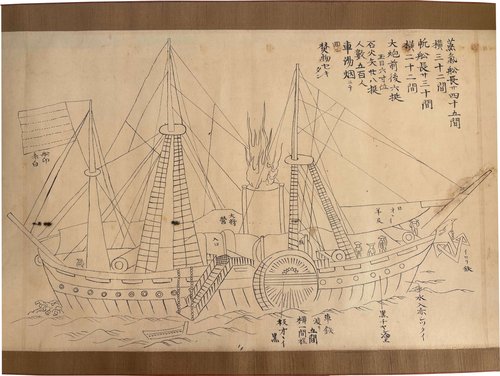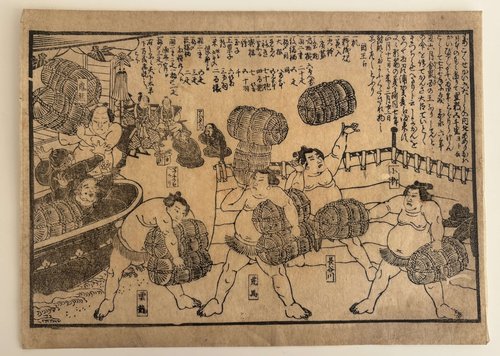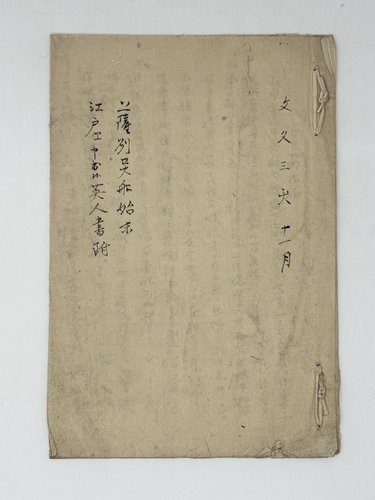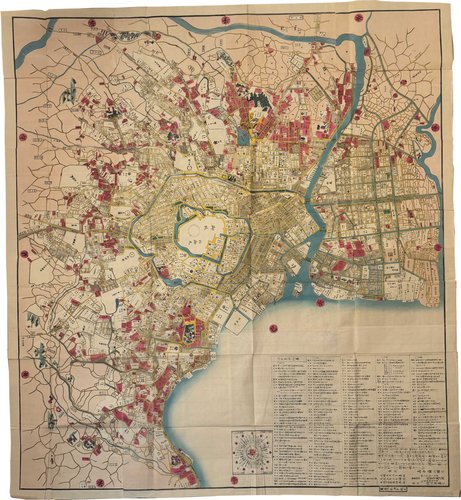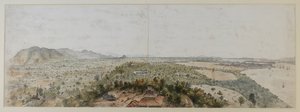
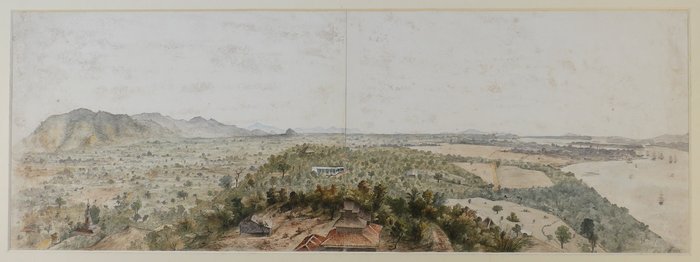
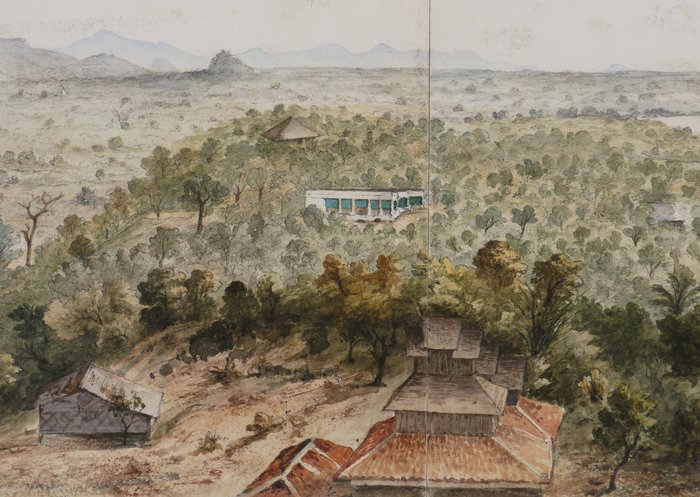
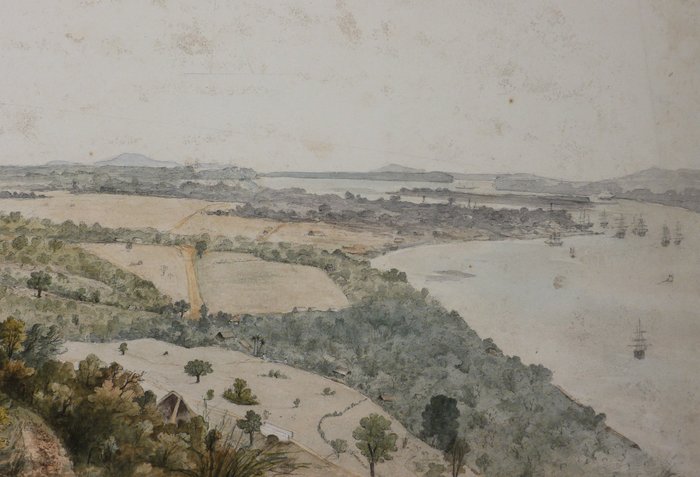
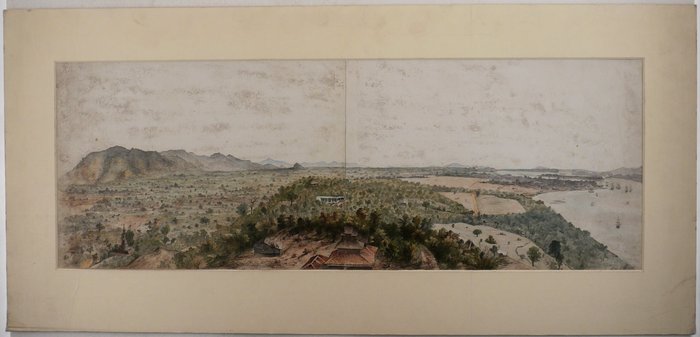
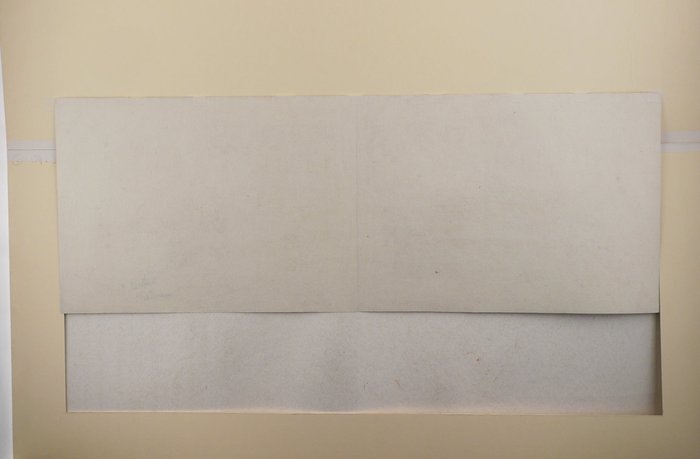
#MC66
Ca. 1853
Watercolour and pencil on two conjoined leaves, total size ca. 25,5x70 cm (10 x 27 ½ in). Weak pencil caption "M. Carthew. Moulmein" on verso. Recent matting. A very good watercolour.
An impressive panoramic view of Mawlamyine or Mawlamyaing (formerly Moulmein), the third-largest city in modern Burma and an important port and trade centre in British Burma and its first capital in 1826-1852. The wide panorama shows the city from the Taungnyo hills on the right to the Thanlwin (Salween) River on the left, with the British ships in the harbor and rice fields, houses and small pagoda also shown. Most likely the watercolour was made from the famous viewpoint on Kyaikthanlan Pagoda located on the hills overlooking Moulmein.
The artist, Lt. Colonel Morden Carthew, was a prominent British colonial officer who served in India and Burma for 12 years and had several important posts in the administration of Moulmein.
The view from the pagoda, created by a British soldier could have been the basis for Rudyard Kipling’s poem "Mandalay":
By the old Moulmein Pagoda, lookin' lazy at the sea,
There's a Burma girl a-settin', and I know she thinks o' me;
For the wind is in the palm-trees, and the temple-bells they say:
"Come you back, you British soldier; come you back to Mandalay!"
General Morden Carthew, C.B., started in 1848 as a cadet in the Madras Presidency of the East India Company. In around 1850 with his own regiment, the 26th Madras Native Infantry, he was sent to Moulmein, Burma. "When the second Burmese war broke out in 1852, young Carthew, then a Lieutenant, was in England on sick leave; but he hastened out and rejoined his regiment just after capture of Martaban, a fortified town belonging to the Burmese on the opposite side of the river on which Moulmein stands. Some tedious months of garrison work in Martaban followed, which Carthew utilized by setting to work to study the Burmese language." Thanks to his skills he obtained a place in the Civil Department of the British province of Moulmein as an officer assisting "in the pacification and civil administration of the newly annexed territory." "During the course of the war in 1852-53 Carthew saw a good deal of what was going on, and was present at several of the small actions that took place, for there were no pitched battles, the Burmese troops being very inferior in armament and courage." Carthew made the first survey of the town of Sittang and after "obtained a regular certificate for surveying." He was awarded with the Burmese war medal.
"On getting to Moulmein early in 1853, Morden Carthew, at twenty years of age, was appointed Assistant Magistrate of Moulmein, a large town and seaport of over 40,000 inhabitants of every race"; at twenty one he became a Civil Judge in the Civil Court of the Moulmein town and province. In 1855 he was appointed the Senior Magistrate of Moulmein "with all its police duties, with a convict jail chiefly composed of prisoners transported from India to the number of about 1500 men, charge of all the roads and bridges in the town district, and with a multitude of the other duties that only one accustomed to the life and work of an Indian soldier civilian can understand or even count." In 1858 he took the post of the Deputy Commissioner of the Province of Mergui, "the most southern point of British possessions on the Malay Peninsula, under the Indian Government." Altogether he spent 12 years in India and Burma and returned to England in 1860. He afterward lived in Dumfriesshire (Scotland) and took an active part in the county affairs. He was known for his wood carving skills and exhibited his work in London and Edinburgh.
[Abstracts of the] Carthew Yorstoun family [genealogy] // The Gallovidian: An Illustrated Southern Counties Quarterly Magazine. Spring 1905. # 25. Vol. Viii. P. 1-9 (Open Library on-line).

